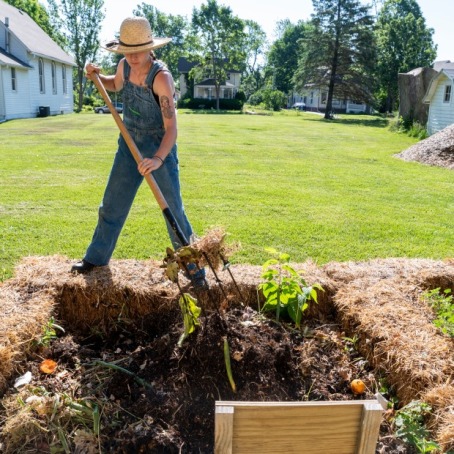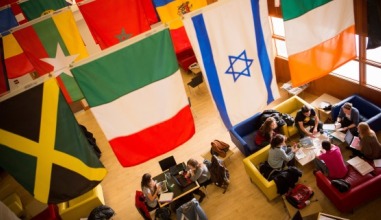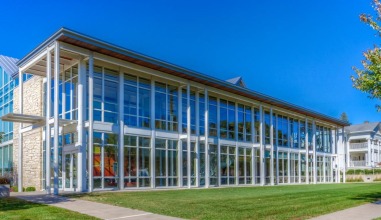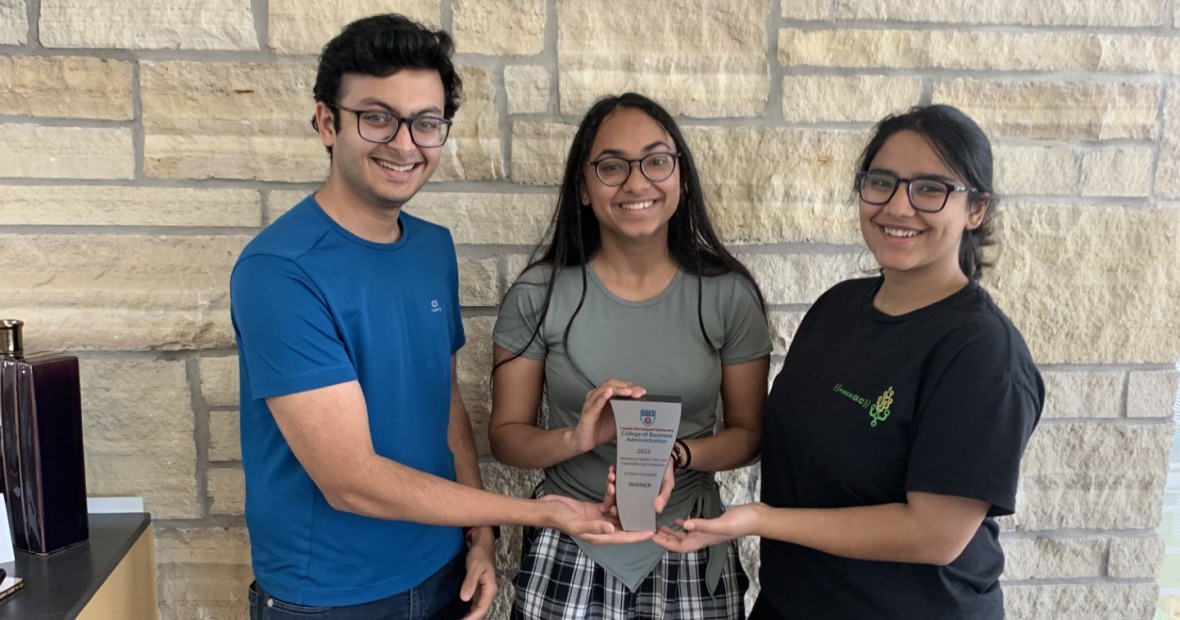Grinnell Students Win International Business Ethics and Sustainability Case Competition
Priyanka Gupta ’25, Parikshit Roychowdhury ’26, Ananya Manchanda ’26, and Augie Ros ’25 won Loyola Marymount University’s (LMU) 2023 International Business Ethics and Sustainability Case Competition (IBESCC). Led by Gupta, the group of Grinnellians competed as the Union Consulting Group (UCG), a team aspiring to transform problematic company practices into ethical ones.
The team’s case study focused on Coca-Cola, a company that has faced criticism for the alleged use of union-busting strategies, poor working conditions, and child labor. The team also sought solutions to combat Coca-Cola’s increased manufacturing costs, which led to the mass firing of Coca-Cola employees. After analyzing the United Nations’ sustainable development goals, the student group successfully recommended several ethical and sustainable production practices to the competition’s judges.
Michael Lawrence, director of Grinnell’s business and finance career community, mentored the UCG for the three-part competition, which included an hour of presentations, Q&A sessions, and pitches for different aspects of the company’s problems. As a former corporate executive of two decades, Lawrence was able to share his work discipline and insight with the student team in preparation for the competition. “If this were a group of students presenting the ethical and sustainable dimensions of child labor and why it’s a bad thing,” says Lawrence, “that’s pretty easy to do. Anyone can say it’s a public relations nightmare. So what? A lot of things are. When you’re sitting in front of a bunch of men and women making millions of dollars, and their careers are about running that company, [presenting actionable solutions] is not only a great skill but a hard one.”
Business executives with experience in corporate ethics, social responsibility, executive leadership, and sustainability determined the competition’s winners. The judges played the role of Coca-Cola executives and evaluated the team’s case study.
Sharpening Skills for the Real World

The competition sharpened the team’s insider perspective on the company’s dilemmas and pushed them to seek data that proves their solutions’ viability. As an economics major aspiring to work in consulting, Gupta says understanding the problem’s foundation equipped her with the skills to tackle sustainability concerns anywhere. “Nowadays, almost every company has started focusing on sustainable goals and development. If I’m a part of a firm and there’s an idea that impacts any of these goals, I need to be aware of it and work a way around it,” she says.
Roychowdhury, who is also interested in consulting, notes that the field is more than just business-related. “At the end of the day, the competition was about financial viability, but it was also about creating the solution, which is less about finance and more about understanding the law, ethics, and how development works. We were pulling a lot of things from the United Nations’ development program, as well, [but it required] an understanding of how these agencies work. Can you take funding from these agencies? What do they fund? [Creating our solutions] reinforced the idea that I could be in the consulting space without a pure finance or business background.”
Competitions like this one are essential experiential learning experiences that qualify Grinnellians, particularly first and second-year students, for future finance and business job opportunities. “I want to make sure that we offer opportunities for some of the younger students to build upon throughout the rest of their academic career,” comments Lawrence. “The pressure in the business or finance area is to be better prepared earlier and earlier, [and so] I have an open mind for first and second-years who want to get involved.”
Gupta, for example, competed in the CFA Institute Research Challenge before leading the team for the LMU competition. The CFA Challenge, which deals with financial analysis and professional ethics, expanded her research and presentation skills and her ability to delegate work and answer on-the-spot questions from executives. “In addition to the experiential career opportunity for people like Priyanka,” mentions Lawrence, “it’s a great chance to lead and feel some of the frustrations and adulation of being a leader. She did a phenomenal job and really rose to the challenge.” According to Lawrence, entering these competitions “make perfect Grinnellian sense,” even if Grinnell doesn’t offer finance or business majors.

Instead, Grinnell’s liberal arts curriculum influenced the team’s approach to the competition. For Roychowdhury, his Global Development Studies classes – such as Development in Fragile and Conflict-Affected Countries – allowed him to examine labor and political dimensions of Latin America’s development space well ahead of the competition. “We could ask questions from the context we already had in class and create those linkages … here’s Mexico, here’s the United States, here’s the European Union, the Philippines, and Colombia. How do they all come together in this nuanced way to fuel the problem? What are the trade relations with Mexico? What kind of political regimes exist, and what labor laws are common [within them]? It was very interesting to have that context from class and to be able to ask those questions.”
These experiential learning experiences often allow for creative collaboration with peers, as well. The UCG devoted hours of discussion with one another, tracking down areas for company improvement and eliminating gaps that prevent sustainable and ethical practices. The team created their presentation only a few days before the competition, allocating much of their time to discovering new information and analyzing it intensely during their collaboration time. As a result, their hard work translated into a palpable harmony that the judges loved, particularly during the 20-minute Q&A session. “The harmony between your team members is noticeable [with] the way you talk to each other while answering these questions,” they remarked.
“And that led us to have an edge against the other teams!” Gupta smiles.
Real-Life Winning Solutions
Most importantly, the competition shone a light on how students can get involved with the industry and make significant changes in the world. In the case of Coca-Cola, the team presented solutions that adjust Coca-Cola’s packaging, modify exportation practices, and shift the company’s focus to “still” drink brands to cover losses from increased sugar tax rates. The team also resolved to ensure strict vigilance over labor practices and improve the relationship between the company and the workers’ unions.
“There is a great chance to be a force for good whether you’re inside or outside the organization, and it gives the students a great opportunity [to enact change] on the inside,” says Lawrence. These young students care a lot about social equity, sustainability, and ethics, so why not put them in a case study that requires that? It’s a chance for Grinnellians who are bright and talented to practice [their skills] and feel confident in their ability to do that. In the end, the team presented actionable solutions by these big companies in the real world, and I think that’s one of the reasons they were the winner.”

About IBESCC & the Center for Careers, Life, and Service
The International Business Ethics and Sustainability Case Competition announced winners in mid-April. The case study is a hybrid competition focused on applying ethical reasoning and sustainability goals to business practices. The Center for Careers, Life, and Service (CLS) connects Grinnellians to diverse and varied case competitions, sponsoring teams and students as a part of CLS’ career preparation programming. Core aspects of the business and finance career development programming include financing competition fees and mentoring students to unlock their potential and maximize their learning experiences in these fields.

